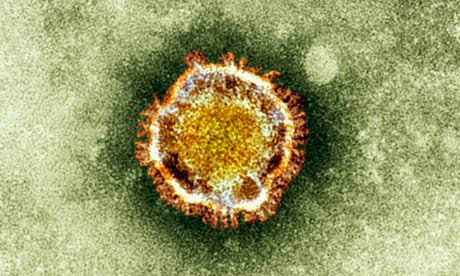Recently, a new virus called MERS, similar to SARS, has been spreading from the Middle East. Just like SARS, it is a coronavirus and it isn't known exactly how it spreads. Already twenty seven out of the forty nine people who have been infected have died and scientists have not yet found a cure for this virus. It is spread by human to human contact and from behaviors such as coughing and sneezing. The virus itself causes respiratory problems, kidney failure, pneumonia, and gastrointestinal problems. Like seventy five percent of emerging diseases, this virus originated from an animal, the bat, and because of the unstable pool of microbes, new infectious agents are produced.
http://news.nationalgeographic.com/news/2013/05/130530-mers-cov-virus-nathan-wolfe-pandemic/

NOS Themes
-Science is based on motivation. Scientists do not know yet how to cure this disease and because of the high death rate, are motivated to find a solution.
-Science is collaborative. Many organizations such as the U.S. Agency for International Development's Emerging Pandemic Threats Program and the U.S. Department of Defense's Cooperative Biological Engagement Program.
-Science is tentative. There isn't a lot known about this virus yet and hopefully, this will change soon.


Wow! I hope that soon they will be able to formulate a vaccine before the disease spreads to other countries. Recently, it spread to Italy, where 3 people are infected.
ReplyDeleteHere's another article about the virus.
http://edition.cnn.com/2013/05/29/health/coronavirus-qanda/index.html
Fortunately, widespread transmission has not yet been seen, and all the cases have had some connection to the Middle East. Even so, there have been no travel warnings issued at this point.
ReplyDeletehttp://www.cnn.com/2013/05/17/health/coronavirus-5-things